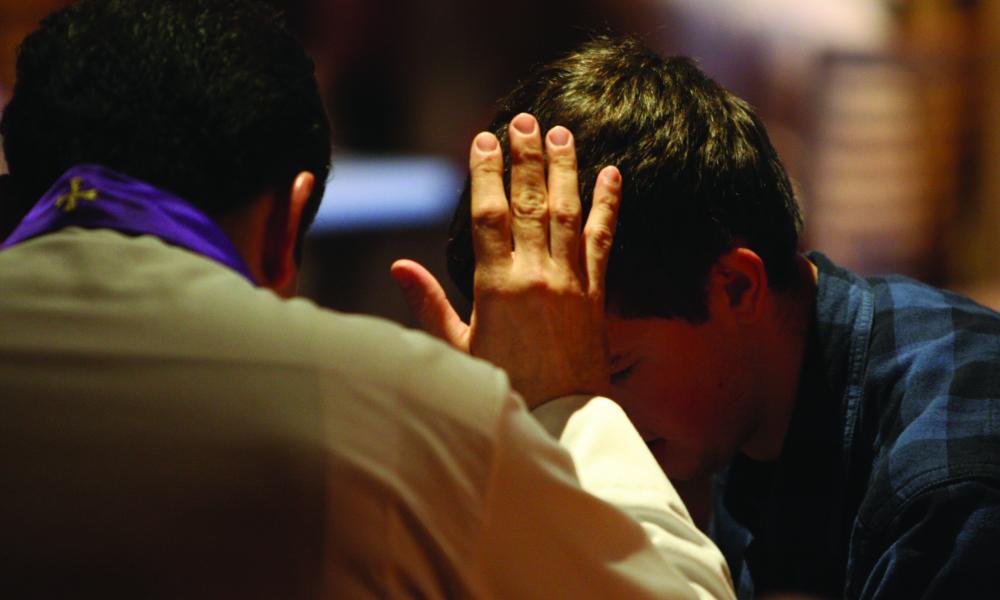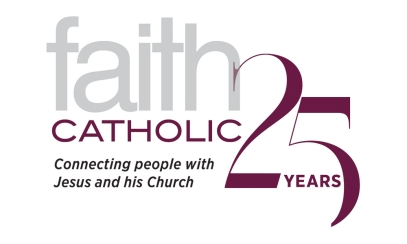
Experience God’s mercy in the sacrament of reconciliation
Is it really Lent again so soon? Indeed it is, which means that reconciliation chapels and confessionals everywhere will be seeing longer lines as we seek opportunities for the sacrament of reconciliation. The season of Lent is a grace-filled time for spiritual growth, and one of the paths for growth is this sacrament of God's mercy and forgiveness.
Is it really Lent again so soon? Indeed it is, which means that reconciliation chapels and confessionals everywhere will be seeing longer lines as we seek opportunities for the sacrament of reconciliation. The season of Lent is a grace-filled time for spiritual growth, and one of the paths for growth is this sacrament of God's mercy and forgiveness.
In the past I have shared with you my uneasy relationship with reconciliation in my early life. That has changed profoundly in my life and ministry as a priest. Although it is mentally and emotionally demanding to spend many extra Lenten hours celebrating reconciliation, it is, paradoxically, something that I look forward to during Lent. Helping folks to experience God's forgiving mercy through this beautiful sacrament is some of the most sacred work we priests undertake.
I am also very much aware that the celebration of the sacrament of reconciliation can be less than exciting for many. I sometimes think that if we were to rank the seven sacraments from most-to-least-favorite, reconciliation for many might come in a distant tenth. With that in mind, I want to offer some perspective and some encouragement, especially if you have a less-than-warm relationship with this sacrament.
The place to begin is with a reminder that reconciliation (or confession) is never solely about how awful we can be. It is really about God's goodness and God's desire to seek out and save the lost sheep. The scriptures remind us that Jesus often spent time with those who were considered sinners by the religious leaders of his time. Jesus did this because he wanted to, because he knew that we need God's mercy, even if we can't recognize that in the moment.
If it's been a while since a priest has heard your confession, just be honest. "Father, it's been a lot of years since my last confession" are words that help the confessor to better assist the penitent. Don't worry about what to say or when to say it, especially if it has been a while. Let the priest guide you through the celebration of the sacrament. If you're worried that you don't recall the act of contrition, just be honest. Usually a card or worship aid with this beautiful prayer is available to assist.
If you are hesitant to seek out the sacrament because your last experience was not a positive one, give it another try. Perhaps the priest confessor had had a bad day or was out of sorts. It's important to remember that we priests are human, too. All of us hope that the sacrament will be a positive experience.
Finally, it's important to remember that what is shared in the sacrament of reconciliation remains within that setting. I know from my own experience as a confessor that as the penitent receives the grace of God's forgiveness, I receive the grace of forgetting. Whatever was shared in reconciliation is simply wiped away from my memory. I think this, too, is an expression of God's mercy. No one would consciously want to carry such burdens, and so we commend them to the Lord.
It is Lent once again. I encourage all of us to seek out the beautiful sacrament of reconciliation, asking that our sinful selves might die, so that we can rise to renewed life at Easter. And so, our journey in FAITH continues.



